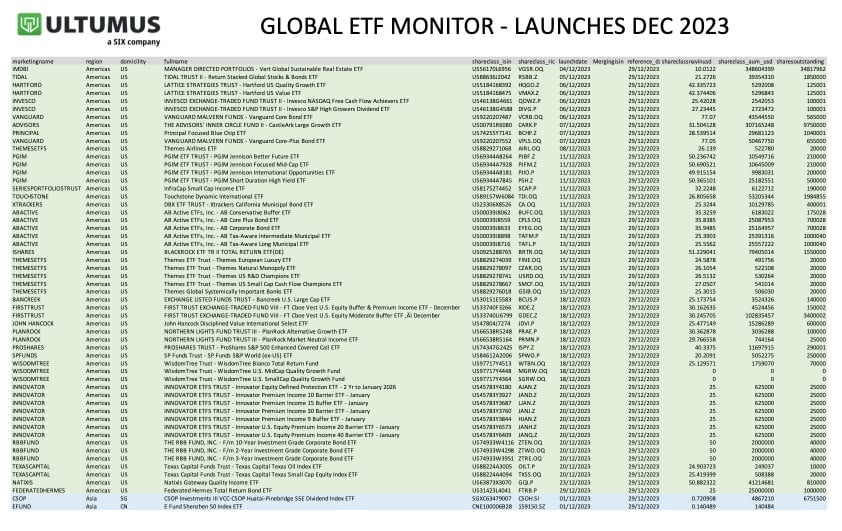Korea
Mirae lists high dividend paying infrastructure REITs tracker
Mirae Asset, one of the world’s largest ETF providers and known around the world through its subsidiaries (Global X in the US, Horizons in Canada, BetaShares in Australia) is buffing up its product offering in the home market and listing a very specific dividend infrastructure REIT ETF.
The Mirae Asset TIGER Real Estate Infra High Dividend ETF (329200) will track an index from FnGuide, the biggest Korean index provider. (Methodology here, in Korean). The index removes companies that fail to meet certain liquidity and size requirements. It then hunts for global REITs that mostly hold infrastructure-related investments and pay high dividends. It's certainly an interesting strategy and one wonders which companies will be found.
The fund charges 0.29%.
USA
Principal lists closet trackers to help advisors keep their jobs
Principal Funds, a subsidiary of the S&P 500 company Principal Financial Group, is listing three low cost smart beta ETFs.
- Principal International Multi-Factor Core Index ETF (PDEV) – 0.25%
- Principal US Large-Cap Multi-Factor Core Index ETF (PLC) – 0.15%
- Principal US Small-MidCap Multi-Factor Core Index ETF (PSM) – 0.20%
PDEV and PLC are basically the same. One starts with a universe of large caps from rich countries excluding Korea, while the other starts with an index of US large caps. Securities are then ranked based on three factors: value (measured by dividends and buybacks), quality (sales growth and profitability), and momentum. These factor scores - together with market cap - are used to give companies their weight in the index.
PSM is slightly different. It starts with a universe of US small and mid caps, subject to de minimus market cap and liquidity requirements. (As is common for small cap trackers). It then uses the same value, quality and momentum screens and adds a volatility screen.
Analysis – stopping advisers getting fired
When advisors go to bed at night, they have nightmares about losing their clients. That is, they have nightmares that their clients find out there is little more to investment management than shuffling a few ETFs. Seeing no reason to pay a 1% AUM-based fee for this, they fire their advisor and flutter into the loving arms of Vanguard and/or Schwab, cheerlead by the Bogleheads forum.
The great genius of smart beta ETFs is that they give advisors something of a workaround to this getting fired problem. That is, they provide advisors with intellectual capital and a way of adding value that justifies their AUM-based fees. This, in turn, militates against them getting fired.
In light of this, there is a kind of cleverness in today’s listings. They charge low fees, which endears them to advisors and client alike. They then claim to have a lot of scientific-sounding analysis going under the hood with a multi-factor approach based on proprietary models. This then helps advisors look clever in front of their clients, which – hopefully and in theory – should reduce their chance of getting fired.
If Principal’s existing ETF suite is anything to go by, chances are todays three ETFs will be closet trackers. But as they’re low cost and provide a useful tool for advisors they could see strong inflows.




